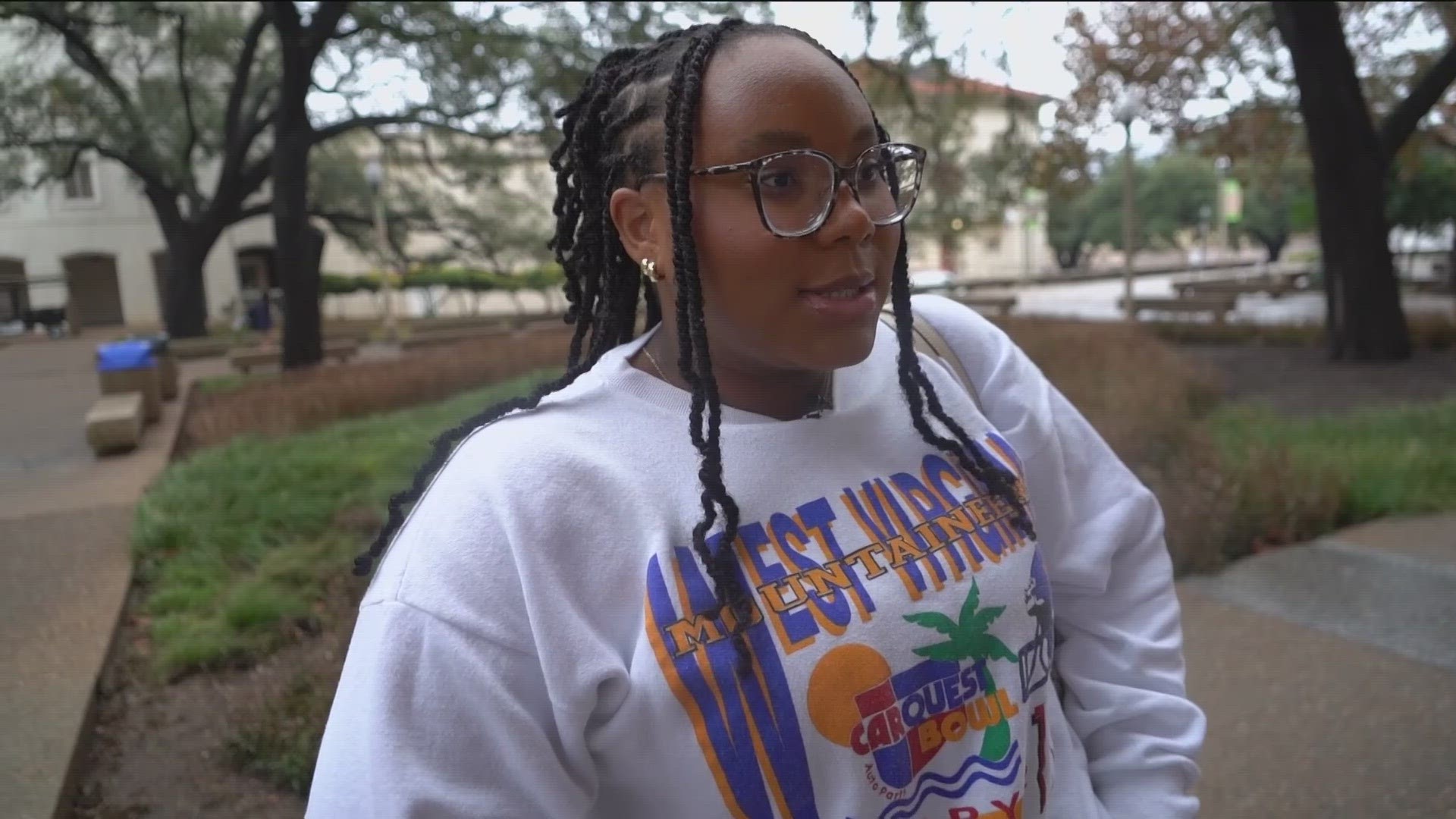AUSTIN, Texas — Weeks after some University of Texas at Austin students expressed disappointment fallout from Senate Bill 17, alumni are stepping in to help them out.
Students who were close to graduating were told that cultural graduation ceremonies would no longer take place, with an email circulating on social media saying it was due to the DEI ban, which forced the Multicultural Engagement Center (MEC) to close its doors.
However, the Texas Exes, a nonprofit alumni organization, confirmed to KVUE that they would host four celebrations for LatinX, Black, Asian and LGBTQIA+ students on May 8 and 9 so students can get pre-purchased commemorative items, including their stole and a Longhorn pin.
"The Texas Exes looks forward to celebrating our 2024 graduates and welcoming them to the Alumni Center and the next chapter of their lives," the nonprofit said in a statement. "Through these celebrations, we will help new grads get plugged into our Networks, which work year-round to support students and alumni around the world."
To fill the gap of the MEC, UT introduced the Division of Campus and Community Engagement, to engage with the campus community while also fostering a sense of belonging for all.
KVUE asked the university in January about what else is being done to accommodate students.
A staff member directed us to a letter announcing the creation of the Division of Campus and Community Engagement, saying, "Due to Senate Bill 17, the Multicultural Engagement Center has closed as of Jan. 1. The university will consider how best to use the space as part of the Powers Student Activity Center to continue building community for all Longhorns."
UT Associate Professor David DeMatthews also said in January that while the university puts its best efforts into navigating how to implement the new law, he said students should not be discouraged.
"I hope they know, though, that SB 17 doesn't affect the course content, the academic programs at the University of Texas or any other public university," DeMatthews said. "It's important for them to organize, to use their voice, to be active in politics, to not accept the status quo."

